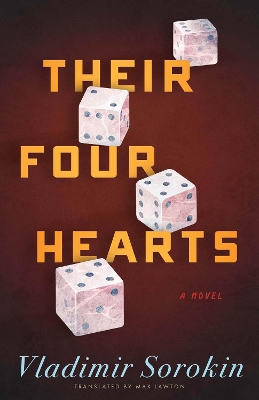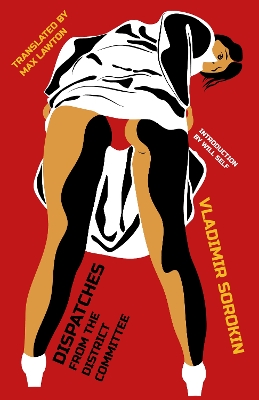Russian Literature
2 total works
Their Four Hearts follows the violent and nonsensical missions carried out by a group of four characters who represent Socialist Realist archetypes: Seryozha, a naive and optimistic young boy; Olga, a dedicated female athlete; Shtaube, a wise old man; and Rebrov, a factory worker and a Stakhanovite embodying Soviet manhood. However, the degradation inflicted upon them is hardly a Socialist Realist trope. Are the acts of violence they carry out a more realistic vision of what the Soviet Union forced its “heroes” to live out? A corporealization and desacralization of self-sacrificing acts of Soviet heroism? How the Soviet Union truly looked if you were to strip away the ideological infrastructure? As we see in the long monologues Shtaube performs for his companions––some of which are scatological nonsense and some of which are accurate reproductions of Soviet language––Sorokin is interested in burrowing down to the libidinal impulses that fuel a totalitarian system and forcing the reader to take part in them in a way that isn’t entirely devoid of aesthetic pleasure.
As presented alongside Greg Klassen’s brilliant charcoal illustrations, which have been compared to the work of Bruno Schulz by Alexander Genis and the work of Ralph Steadman as filtered through Francis Bacon by several gallerists, this angular work of fiction becomes a scatological storybook-world that the reader is dared to immerse themselves in.
Grotesque, deconstructive, and absolutely genius, Vladimir Sorokin’s short story collection Dispatches from the District Committee is a revelatory, offbeat portrait of Soviet life beyond the propaganda and state-sponsored realism.
Celebrated—and censored—for its political satire, literary irreverence, and provocative themes, Sorokin's work has been recognized across the world for its scathing, darkly humorous commentary on political and cultural oppression in the Soviet Union and contemporary Russia.
Dispatches from the District Committee brings together stories from Sorokin’s incendiary 1992 collection The First Subotnik/My First Working Saturday and elsewhere. Skillfully translated by Max Lawton, these stories remain subversive classics, and increasingly relevant in a post-truth information age.

